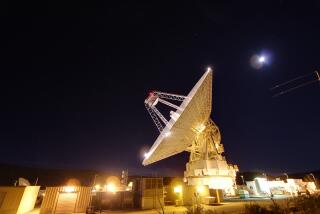NASA’s Continuing Problems
- Share via
The article is generally correct in its assessment that “Shuttle fixation lies at the heart of NASA’s bureaucratic miasma.”
However, Easterbrook is incorrect in suggesting that U.S. scientists have been remiss, compared to scientists in the Soviet Union, by failing to criticize the Space Shuttle as impractical. I was a member of the National Academy of Sciences’ Space Sciences Board in 1972 and in 1986, and know that the strong consensus expressed at both times was that the Space Shuttle was an inefficient means to do science compared to expendable launch vehicles.
The reason why this consensus of space scientists is not often heard is because scientists are human, and don’t take much satisfaction in talking to a brick wall. Scientists in the United States have much less prestige and influence than those in the Soviet Union due to a variety of factors, most important being the relative power of other institutions, particularly the press and industry.
WILLIAM M. KAULA
Professor of Geophysics, UCLA
Member, National Academy of Sciences
More to Read
Sign up for Essential California
The most important California stories and recommendations in your inbox every morning.
You may occasionally receive promotional content from the Los Angeles Times.













